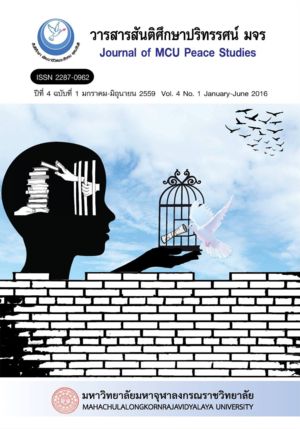Cambodia from Civil Wars to Fragile Peace: A Secular Perspective
Main Article Content
บทคัดย่อ
The modern history of Cambodia is a tragic one, so much so that American historian David Chandler titled his well-known book “The Tragedy of Cambodian History”. The Indochina Wars during the second half of the 20th century had major impacts on Cambodia. Thanks to her geographical position in the region, it was virtually impossible for Cambodia not to be drawn into conflicts that were in essence proxy wars of the hegemonic rivalry of major powers during the Cold War. Between 1955 and 1993, Cambodia had gone through several regime changes, none of which was peaceful. In 1991, rival factions in the Cambodian civil war signed a peace accord in Paris that paved the way for a UN peace mission the following year and a UN-sponsored multi-party national election in 1993. Following the end of the communist Khmer Rouge guerilla resistance in the late 1990s, Cambodia has enjoyed relative peace and stability. Nonetheless, despite the absence of war at present, Cambodia has not been able to enjoy peace in the fullest sense.
Though political violence has been reduced during the past two decades, the likelihood for political instability remains at large. This paper provides a brief historical discussion about conflicts in Cambodia, as well as the current challenges in achieving positive peace in the country.
Though political violence has been reduced during the past two decades, the likelihood for political instability remains at large. This paper provides a brief historical discussion about conflicts in Cambodia, as well as the current challenges in achieving positive peace in the country.
Article Details
รูปแบบการอ้างอิง
Deth, S. U. (2016). Cambodia from Civil Wars to Fragile Peace: A Secular Perspective. วารสารสันติศึกษาปริทรรศน์ มจร, 4(1), 316–324. สืบค้น จาก https://so03.tci-thaijo.org/index.php/journal-peace/article/view/76608
ประเภทบทความ
บทความวิชาการ
ทัศนะและความคิดเห็นที่ปรากฏในบทความในวารสาร ถือเป็นความรับผิดชอบของผู้เขียนบทความนั้น และไม่ถือเป็นทัศนะและความรับผิดชอบของกองบรรณาธิการ ยินยอมว่าบทความเป็นลิขสิทธิ์ของวารสาร


